Olympic Games 2024 countdown begins: Paris prepares for summer ...
April 17, 2024, 9:00 AM UTC
Start the countdown clock. In exactly 100 days, more than 10,000 athletes and tens of thousands of spectators will converge on Paris for the start of the 33rd Summer Olympic Games, a 16-day extravaganza that marks the first time the City of Lights has hosted the world’s pre-eminent sports festival in a century.
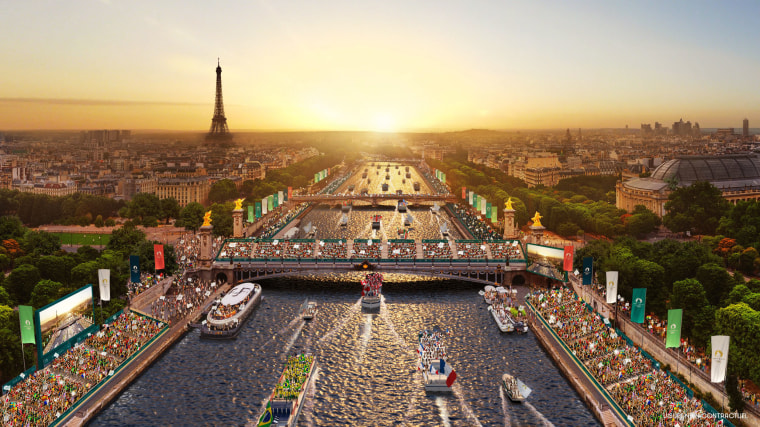
In keeping with the slogan for this year’s Olympics, “Games Wide Open,” the opening ceremony will take place outside a stadium setting for the first time. The plans are ambitious: a 3.5-mile boat parade along the Seine before as many as 325,000 onlookers on the river’s banks. The hundreds of athletic events — hosted by dozens of venues across Paris and other cities in metropolitan France — will likewise be open to large crowds.
In many respects, the Paris Games promise to be one of the most elaborate cultural rituals since Covid swept across the world beginning in late 2019. Health restrictions forced the organizers of Tokyo 2020 and Beijing 2022 to sharply limit the scale of the festivities, with events largely closed to the public. Paris 2024, powered in part by pent-up demand for communal experiences, symbolizes an international post-pandemic vibe shift.
But with that spirit of openness comes all-too-familiar challenges. The festivities in Europe’s most densely populated city are shadowed by security concerns. The International Olympic Committee and French officials have insisted that they are putting strict security measures in place. Yet the recent history of violence in France — including the 2015 terror attack in Paris that left 138 people dead and at least 416 injured — stalks public consciousness there.
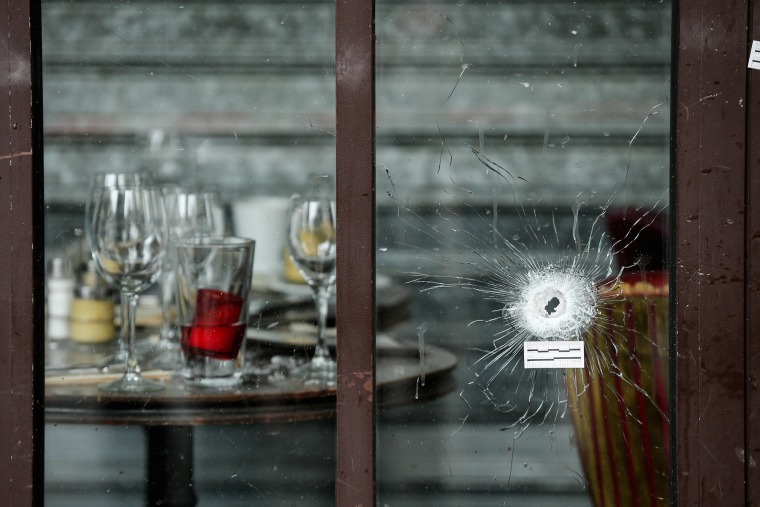
The geopolitical backdrop for the Paris Games is no less troubling. The war between Israel and Hamas recently crossed the six-month mark, raising fears of a protracted conflict and wider regional instability. The devastation in the Gaza Strip has provoked international outrage, isolating Israel on the global stage. Meanwhile, Russia continues to gain ground in its military offensive against Ukraine as some Western nations worry about the rise of authoritarianism.
These international crises could come into play during the Games in the form of protests and other political demonstrations.
“It is certain that the international context is particularly tense today,” Tony Estanguet, president of the Games’ organizing committee, recently told Radio France. “I believe in this universal event. It’s up to us to preserve, to talk about sport and not to politicize the subject too much.”
Nevertheless, Olympics organizers are determined to put on a show that stuns the throngs assembled on the boulevards of Paris, not to mention the millions of people expected to watch the Games unfold on their televisions and mobile devices. If the surge of enthusiasm for the Super Bowl, Taylor Swift, March Madness and the solar eclipse is any guide, then audiences are craving spectacle — and the Paris Games could be just the ticket.
Going for the goldThe scale of the Paris Games is immense: nearly 40 sports and more than 300 events hosted in at least 35 venues in Paris and other cities across metropolitan France. Following two Games that were hampered by Covid protocols and other tight restrictions, Paris could resemble a colossal international party, heralded by five Olympic rings (fashioned from recycled French steel) that will be displayed on the south side of the Eiffel Tower.
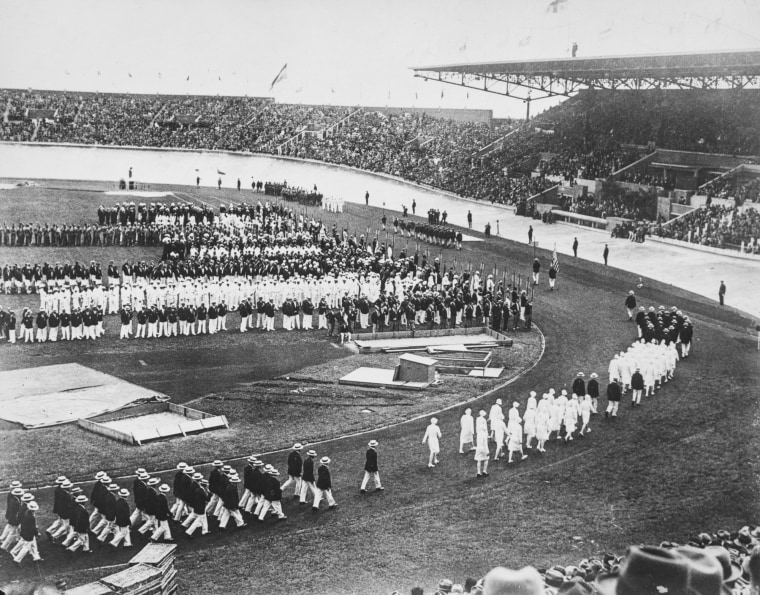
“The last two Olympics certainly didn’t have the look and feel of what we expect from the Games,” said Jeremy Fuchs, a sports writer and the author of a 2021 book about the history of the Olympics. “I would expect Paris to go all out. … With fans back in the stands, we should expect one of the more raucous Games in recent memory.”
The iconic landmarks will be immediately recognizable to worldwide TV viewers. Beach volleyball players will show off their jump serves at a temporary outdoor arena at the Champ de Mars, a large public park at the foot of the Eiffel Tower. Equestrian and modern pentathlon competitions will take place at the Palace of Versailles, one of the emblems of French royal history. The 124-year-old Grand Palais will host fencing and taekwondo.
At least one venue that hosted events during the 1924 Summer Olympics in Paris will be put to use again: Stade Yves-du-Manoir, the home of the opening ceremony 100 years ago. (The stadium also hosted some of the races depicted in the Oscar-winning film “Chariots of Fire.”) This time around, the 117-year-old arena will stage field hockey competitions.
The sports themselves are sure to draw wide attention, from basketball and boxing to sailing and swimming. Breaking (also known as break dancing) is set to make its Olympics debut, and three recently introduced competitions — sport climbing, skateboarding and surfing — will be integrated into the Paris Games, too. (Karate, softball and baseball won’t be part of the lineup.)
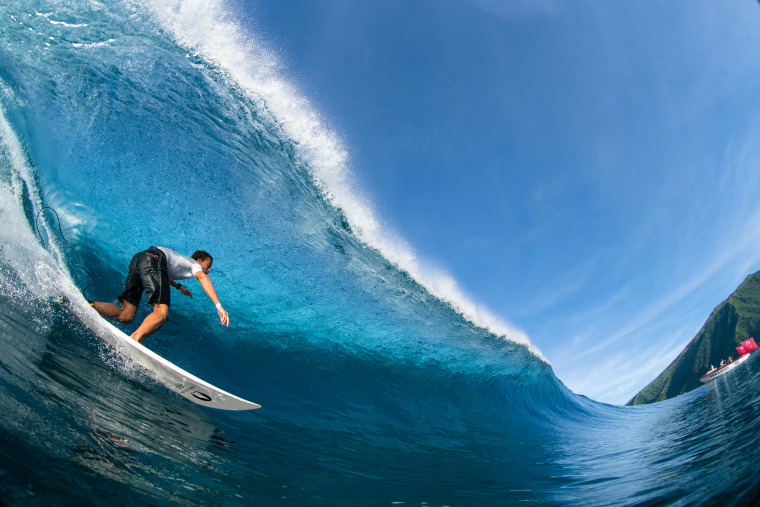
The vast majority of events are set to unfold across France, though there is one exception. The surfing competition will take place in a village on the southwestern coast of Tahiti. Paris organizers chose to hold the surfing events on the French Polynesian island because it “offers an opportunity to engage French overseas territories and their communities in the Olympic Games — for the first time in history — while showcasing France’s rich and diverse heritage.”
Paris organizers have signaled that they are attempting to reach younger audiences by featuring sports that are “closely associated with youth and reward creativity and athletic performance.” But given that relatively few people in their teens and 20s watch traditional linear television, the IOC faces a steep climb in convincing viewers in that age bracket to tune in, according to David Goldblatt, the author of “The Games: A Global History of the Olympics.”
This year’s Games will be more widely accessible to at-home viewers thanks in part to streaming. Peacock, the streaming platform owned by NBCUniversal, plans to invest heavily in live coverage of the festivities, including a “multiview” feature that allows subscribers to watch up to four competitions at the same time.
Superstar personalities could help make the case for the Games as must-see TV. Simone Biles, the seven-time Olympic medal-winning gymnast, hopes to compete in Paris. The list of U.S. athletes who could make waves also includes swimmer Katie Ledecky as well as track-and-field sprinters Noah Lyles and Sha’Carri Richardson.
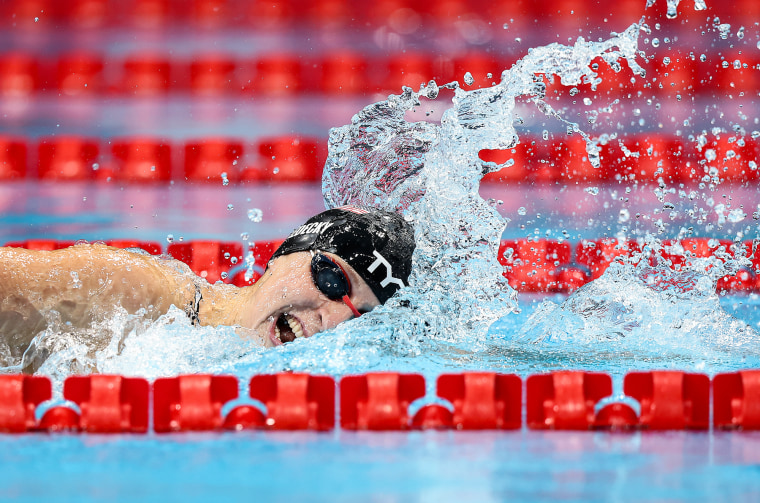
David Wallechinsky, a former president of the International Society of Olympic Historians and the author of “The Complete Book of the Olympics,” said he was most excited about the track-and-field competitions because he believes the sport has the most universal appeal — unlike, say, “swimming the 400-meter medley or participating in equestrian dressage.”
In total, more than 200 countries — known in IOC parlance as national olympic committees, or NOCs — plan to send their most elite athletes to Paris, where most will check into the Olympic Village on the banks of the Seine. Russia and Belarus were banned from the Olympics after Vladimir Putin launched a full-scale invasion of Ukraine on Feb. 24, 2022 — four days after the conclusion of the Winter Olympics in Beijing.
The final stretchIn recent months, preparations for the Games have arguably been overshadowed by the grinding realities of war and humanitarian disaster. Paris 2024 is just the latest in a long line of Olympic Games that have taken place against a backdrop of geopolitical turmoil, according to Wallechinsky, who pointed to several key examples.
The 1936 Summer Olympics were hosted by Berlin and opened by Adolf Hitler three years before the outbreak of World War II. Twenty-nine countries boycotted the 1976 Summer Olympics in Montreal to protest the fact that New Zealand’s rugby team had toured apartheid South Africa. The massacre of 11 Israeli athletes and coaches by Palestinian members of the Black September terrorist organization cast a pall over the 1972 Summer Games in Munich and underscored the violent tensions that are often inseparable from the athletic competitions at the heart of the Olympics.
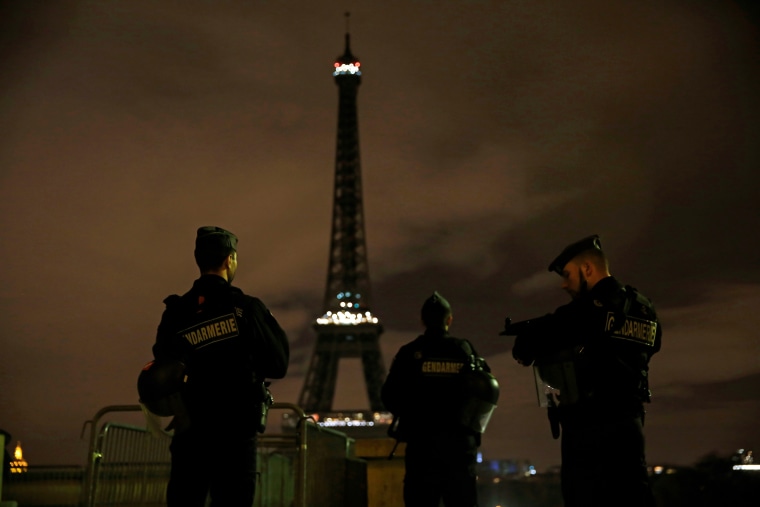
In the Cold War era, the U.S. led a boycott of the 1980 Summer Olympics in Moscow and the former Soviet Union sat out the 1984 Summer Olympics in Los Angeles.
In the lead-up to the Paris Games, France announced it would deploy 45,000 police, military officers and army troops across the country. The country has requested reinforcements from 46 foreign partners — a “classic approach adopted by host countries when organizing major international events,” the Interior Ministry has said. Everyone involved in the Games — security officials, building workers, volunteers — will be put through background checks, too.
French government officials also decided to cap the number of people allowed to watch the opening ceremony at 325,000. Two years ago, organizers had proposed making the July 26 opening festivities accessible to as many as 600,000 people, a grand gathering that would span 6 kilometers (roughly 3.7 miles), stretching from the east of Paris to the Trocadéro.
In response to a request for comment on the security fears, an IOC spokesperson said French authorities had informed the committee that “they have been working for a couple of years under the assumption that the highest security measures will be required.” The spokesperson said that, per usual practices, “there is also very close international cooperation.”

“Based on this and the regular reports the IOC receives from them, we have full confidence in the French authorities and their strong collaboration with their international partners,” the spokesperson added.
In the run-up to the opening ceremony, organizers are also confronting markedly less existential issues — including high levels of “pollution of fecal origin” and other bacteria in the Seine, an environmental headache that might force officials to nix the triathlon swimming section.
“We are working hard on it. You know it’s one of the bigger challenges,” Estanguet told reporters this month.
In the end, though, spectators around the world will likely be focused on the pageantry and competition, savoring the first full-fledged Olympic Games in more than half a decade.
Disclosure: NBC News parent company NBCUniversal owns NBC Sports and NBC Olympics. NBC Olympics is the U.S. broadcast rights holder to all Summer and Winter Games through 2032.
Daniel Arkin
Daniel Arkin is a national reporter at NBC News.















































